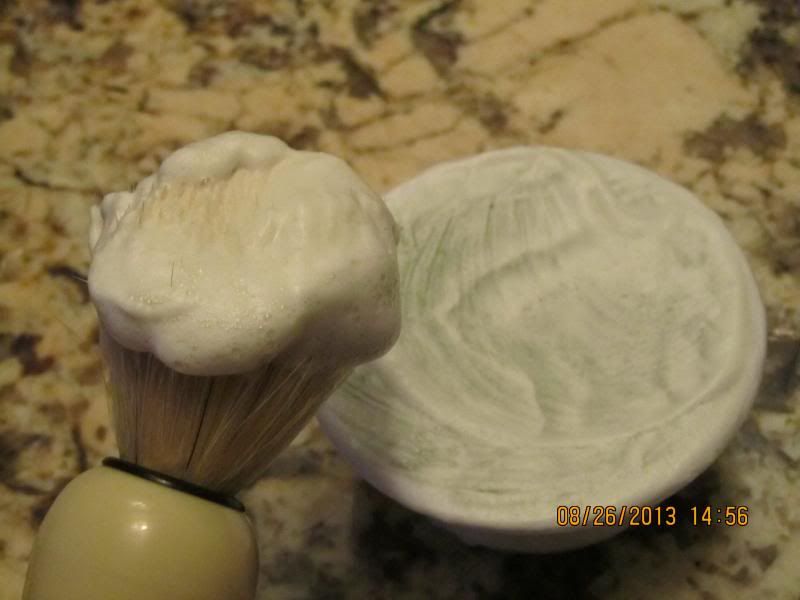The key is to have small thick bubbles that last a long time. A typical shave lasts several minutes and is done in two or three passes, so the lather must must be resilient. As I've said before, and in this case I can speak for all wet-shavers: we use different soaps and techniques every day, which is why we have Shave of the Day posts. What did we do today? If I want a quick workman shave, then I'll grab a cream, lather up and swipe away the hair. The lather won't need to last long. But on the weekends, or if I'm grading awful papers, then I might want a longer shave, so I'll grab a soap and use a hot scuttle. Both techniques require different soap characteristics.
And technique is everything. A lather with big bubbles hasn't been whipped enough and is too watery. A body soap that continues to be rubbed and massaged and lathered never becomes big and creamy; that's what shave soap is for. Though many shave creams can produce lather in 30 seconds, a shave soap typically takes longer to produce a lather, two minutes perhaps. I encourage you all to find some shaving videos on YouTube. Mantec produces some hysterical lathering videos, and is a good place to start. The more chemistry-minded of you (Dee!) should consider watching the "uberlather" videos. If you watch enough of them, you'll notice that brush selection, water quantity, and swirling-speed are recurring themes. In one of the other shaving soap posts I mentioned that soft soaps (both KOH and NaOH, or just KOH) are "forgiving," and produce good lather for everyone. Thats the serious truth, and likely the reason that these soaps are produced like that. They are more tolerant of a varying technique, and perhaps why there is normally consensus on their quality.
There might be a few ways for you all to begin formulating a soap. You might consider how you lather. Is it done at a sink, or in a tub or shower, or in a hurry, or with a brush? Then make a soap that works for your technique. Most of the KOH/heavy Stearic soaps that we all have made have shown us that making a reasonably easy-to-use soap is not difficult, but that making one that doesn't melt in the shower, or responds to a washcloth is more difficult. You're really referring to the technique, not the soap.






















































